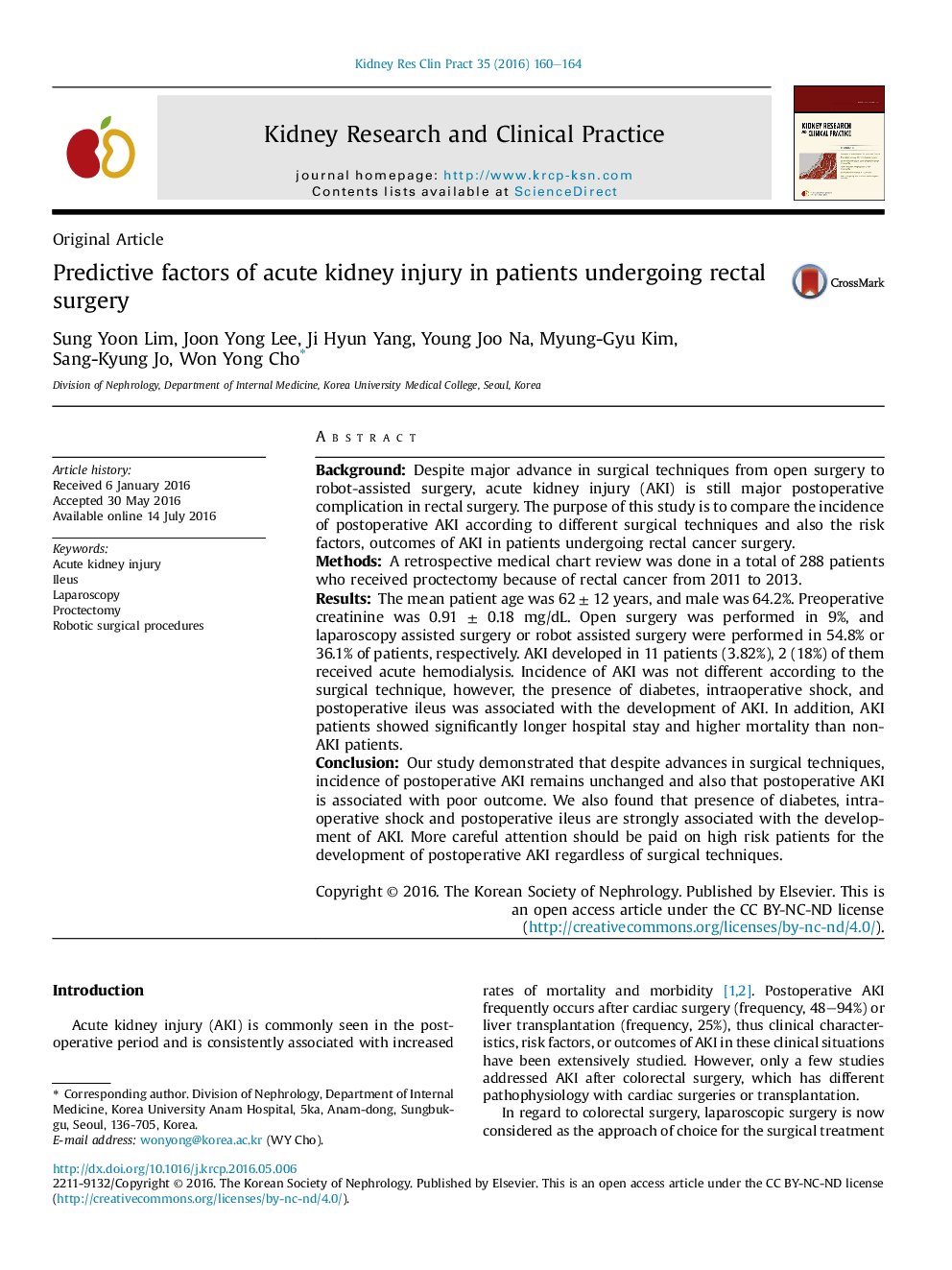| Article ID | Journal | Published Year | Pages | File Type |
|---|---|---|---|---|
| 3892126 | Kidney Research and Clinical Practice | 2016 | 5 Pages |
BackgroundDespite major advance in surgical techniques from open surgery to robot-assisted surgery, acute kidney injury (AKI) is still major postoperative complication in rectal surgery. The purpose of this study is to compare the incidence of postoperative AKI according to different surgical techniques and also the risk factors, outcomes of AKI in patients undergoing rectal cancer surgery.MethodsA retrospective medical chart review was done in a total of 288 patients who received proctectomy because of rectal cancer from 2011 to 2013.ResultsThe mean patient age was 62 ± 12 years, and male was 64.2%. Preoperative creatinine was 0.91 ± 0.18 mg/dL. Open surgery was performed in 9%, and laparoscopy assisted surgery or robot assisted surgery were performed in 54.8% or 36.1% of patients, respectively. AKI developed in 11 patients (3.82%), 2 (18%) of them received acute hemodialysis. Incidence of AKI was not different according to the surgical technique, however, the presence of diabetes, intraoperative shock, and postoperative ileus was associated with the development of AKI. In addition, AKI patients showed significantly longer hospital stay and higher mortality than non-AKI patients.ConclusionOur study demonstrated that despite advances in surgical techniques, incidence of postoperative AKI remains unchanged and also that postoperative AKI is associated with poor outcome. We also found that presence of diabetes, intraoperative shock and postoperative ileus are strongly associated with the development of AKI. More careful attention should be paid on high risk patients for the development of postoperative AKI regardless of surgical techniques.
